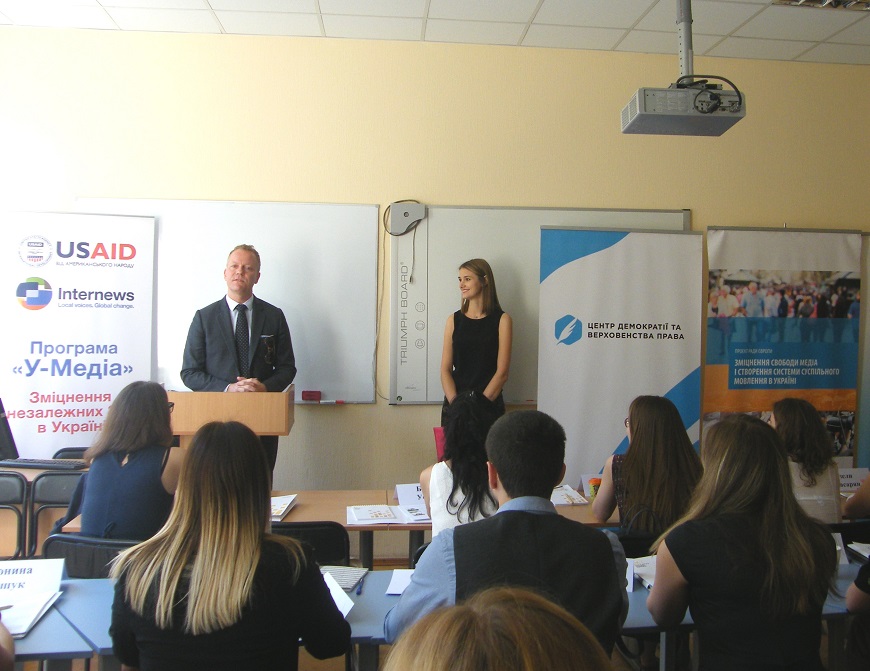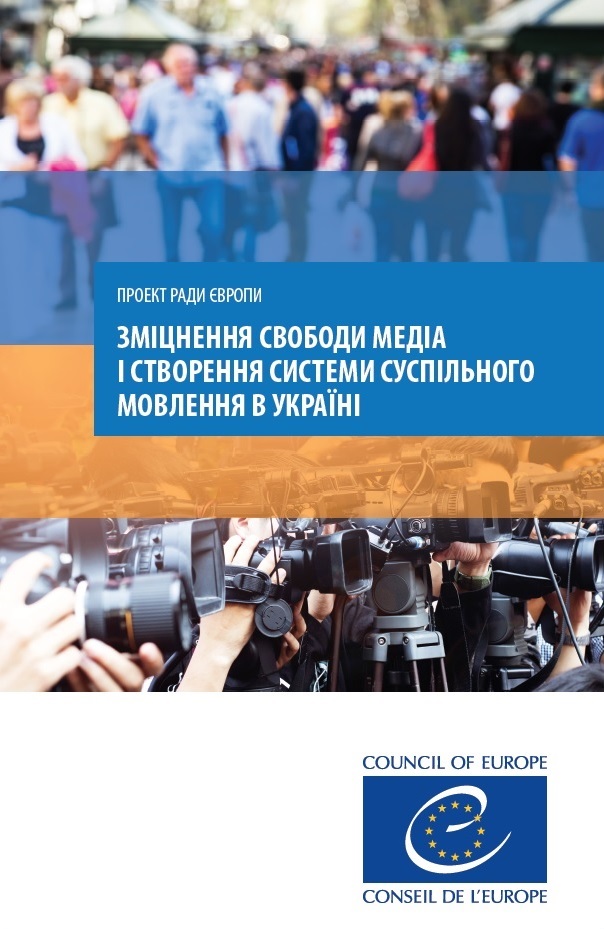On 10 July the 13th International Media Law Summer School started its activity (hereinafter – Summer school) – a course of the Centre for Democracy and Rule of Law for media lawyers which is traditionally organised with the support of the Council of Europe Office in Ukraine. During three weeks 21 participants from 5 countries have undergone an intensive media law training.
Taras Shevchenko, director of the Centre for Democracy and Rule of Law, noted that this project was one of the first for the NGO and has been successfully operating for 13 years. “The summer school is media law alma mater. Participants represent different countries and jurisdictions, different legislative frameworks. Therefore, we will talk more about the legal principles. Once I’ve got into such an audience I realized that we knew little about other countries. Participants will learn a lot about each other: not only in the legal sphere, but also about countries, cultures”, he said.
“It is important that young media law professionals learn more about the European standards and implement this knowledge in their everyday work, so the Council of Europe is happy to support the initiatives like International Media Law Summer School”, noted Marten Ehnberg, Head of the Council of Europe Office in Ukraine during opening remarks.
The agenda of the Summer School includes the issues of ensuring freedom of speech and freedom of information, protection of honor, dignity and business reputation, media activity, regulation of television and radio broadcasting and other issues related to mass media.

- Tobi Mendel (Canada) with lectures “Access to public information”, “Access to public information and IT tools”, “Personal data protection”, “Hate speech”, “Models for Access to Information Supervisory Bodies”;
- Krisztina Rozgonyi (Hungary) with lectures “Regulation of Audiovisual Media Services in the European Union”, “Copyright in the Internet: current trends regarding regulation of copyright at the supranational level. Copyright management. Licensing of copyrights”, “Regulation of New Media Services in the European Union”;
- Olena Dmytrenko, lawyer of the European Court of Human Rights with lectures and practical assignments on the topic “Right to individual applications to the European Courts of Human Rights”.
The Council of Europe Project “Strengthening Freedom of the Media and Establishing a Public Broadcasting System in Ukraine” aims to enhance the role of media and the Public broadcasting in particular as instruments for consensus building in the Ukrainian society. The Project is implemented in the framework of the Council of Europe Action Plan for Ukraine 2015-2017.
The Project “Freedom of media in Ukraine”, implemented within the Partnership for Good Governance is aimed to improve freedom, independence, pluralism and diversity of media in Ukraine.
Follow the Media Projects of the Council of Europe Office in Ukraine on Facebook:
https://www.facebook.com/CoEUPSIS and on Twitter @UkraineCoE
For more information visit the Council of Europe web-site:
https://www.coe.int/en/web/kyiv/freedom-of-media-in-ukraine
Project’s publications can be found at https://issuu.com/mediaprojects_coe



